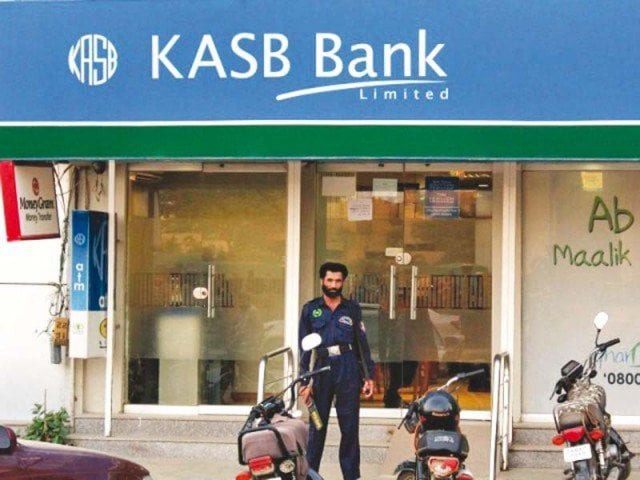KASB Corporation applies for delisting
Move appears to be driven by erosion of financial muscle

Move appears to be driven by erosion of financial muscle. PHOTO: FILE
KASB Corporation formally applied for its delisting from the Karachi Stock Exchange (KSE) on Wednesday.
Informing minority shareholders through the KSE website about the delisting application, sponsors of KASB Corporation said they will repurchase the shares currently resting with individual investors at a price of Rs21 per share.
KASB Corporation: A slow and painful dismemberment
The proposed share price is the current market price of KASB Corporation on the KSE. With only 7,594 shares currently resting with minority shareholders, the sponsors will have to pay a total of Rs159,474 to acquire the remaining stake in KASB Corporation.
In other words, the sponsors already owned 99.9% shareholding in the company and the free float was insignificant anyway. But the decision to get KASB Corporation delisted has apparently little to do with its minimal free float: after all, the current shareholding pattern of KASB Corporation has remained more or less unchanged for many years now.
What drives the delisting, it appears, is the erosion of its financial muscle in the last year or so. The acquisition of its flagship subsidiary, KASB Bank, by another commercial bank, because the former lacked capital adequacy, broke the back of KASB Corporation.
KASB Corporation: A slow and painful dismemberment
The holding company owned 83.6% in KASB Bank, which was sold away in April at a ‘token nominal value’ of Rs1,000. With a network of 105 branches, KASB Bank’s deposits were more than Rs57 billion at the time. The merger of its subsidiary with another bank on the order of the apex regulator meant the entire direct and indirect shareholding of KASB Corporation in KASB Bank came to nought overnight.

In addition, KASB Corporation also lost its shareholding in many other subsidiaries that it owned indirectly through KASB Bank. For example, the shareholding of KASB Corporation in KASB Funds, which is the asset management arm of the holding company, decreased to 46.1% in June from 90% at the end of 2014. Similarly, the stake of KASB Corporation in KASB Modaraba reduced from 72.1% to 0.63% over the same period.
The holding company’s stake in KASB Capital declined from 100% to 78.2% in the six-month period. KASB Corporation also held 100% stakes in ‘My Solutions Corporation’ and ‘Structured Ventures’ at the end of 2014, which were completely wiped out by the end of June.
KASB Securities merges with Bank Islami
The worst hit that KASB Corporation received because of KASB Bank’s sale was in the shape of the exit of KASB Securities, one of the most profitable subsidiaries in the group. KASB Corporation owned KASB Bank (83.6%) which, in turn, controlled 77.1% stake in KASB Securities, the brokerage arm of KASB Corporation.
The stake of KASB Corporation in KASB Securities declined from 77.8% at the end of 2014 to only 0.7% in June.
As a result, long-term investments of KASB Corporation in its subsidiaries at the end of June 30 amounted to just Rs85.3 million, down a massive 92.3% from over Rs1.1 billion a year ago.
In the auditors’ report on the review of interim financial information, the Ernst & Young Ford Rhodes Sidat Hyder Chartered Accountants engagement partner drew attention to the corporation’s equity, which has ‘significantly declined’ over the last one year.
KASB Corporation’s equity amounted to Rs100.4 million on June 30, down a whopping 98.3% from over Rs6 billion a year ago. “These conditions indicate the existence of material uncertainty, which may cast significant doubt about the company’s ability to continue as a going concern,” the auditors noted in their report.
KASB Corporation posted a net loss of Rs16.6 million for Jan-Sept, which is up by almost one-third from the loss posted in the comparable period of 2014.
Published in The Express Tribune, December 3rd, 2015.
Like Business on Facebook, follow @TribuneBiz on Twitter to stay informed and join in the conversation.




1733130350-0/Untitled-design-(76)1733130350-0-208x130.webp)













COMMENTS
Comments are moderated and generally will be posted if they are on-topic and not abusive.
For more information, please see our Comments FAQ